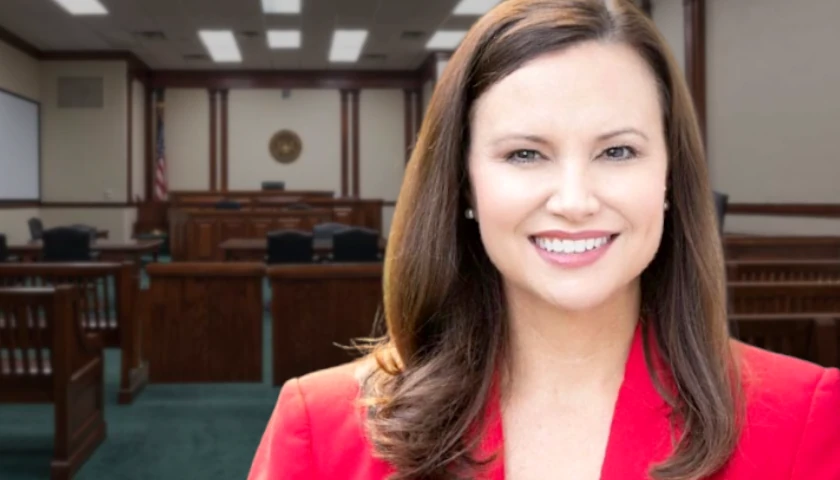by Jenna Stocker
In 1982, the American economy was in recession: 30-year fixed-rate home mortgage interest rates were 16 percent, the unemployment rate was at a post-WWII high of 10.8 percent, and construction and manufacturing, already declining from the collapse of the automobile industry, plunged deeper into decline. America’s adult males were hit particularly hard. That is precisely when my father, young and married with two toddler boys and a newborn (me), bought a house and decided to start his own business.
My dad embodied the American Dream. After high school, he volunteered for the Army during Vietnam. He married, had kids, and worked various jobs until he became disillusioned with the restraints and lack of opportunity at the time and decided to be his own boss, free from corporate pay schedules or stifling hourly wages. He would make his own fate, not be at the mercy of it. Even though there were very tough times, both emotionally and economically, he persisted — and succeeded. It was a time when the American Dream wasn’t politically charged, and its pursuit was a noble cause, not something mocked, dismissed, or repurposed by political parties to co-opt or condemn.
Unfortunately, America’s jaded political class decided that the American Dream is an illusion or a molded-over scrap of Americana that should’ve been tossed into the dustbin of history long ago.
Samuel Wurzelbacher, the man more popularly known as “Joe the Plumber” after confronting then-candidate Barack Obama on the campaign trail in 2008, died on August 27 at his home in Campbellsport, Wis., age 49. In the world of politics and 24/7 news cycles, 2008 was so long ago as to be a different era altogether, yet the lessons of class division, hoi polloi versus elites, and “flyover country” disdain by the coastal intellectuals remain essentially unchanged. Incredible, considering the tectonic shifts among demographics — most notably class — in both political parties.
At the time, Wurzelbacher was the avatar of the disgruntled American: frustrated by the tin-eared Washington, D.C. machine whose policies pandered to the working and lower classes, infantilizing them as being at the mercy of government handouts rather than aspiring to the American Dream. Obama’s flippant response to Wurzelbacher asking about the candidate’s plan to raise taxes on business owners made headlines and later into political hay by the McCain campaign, “When you spread the wealth around, it’s good for everybody.”
The spontaneous conversation was prophetic for the years to come: the advent of the Tea Party and, eventually, the groundswell of support for former President and current candidate Donald Trump marked a Zeitgeist of American discontent at a growing snobbish ruling class. Pundits mocked families suffering the economic consequences of policies made in Washington, propagandized in the media, and heartlessly weaponized by commentators. A striking example is the Stotler family from Texas, who in 2021 was decried over the ability to buy milk for their family of 11 due to supply issues and economic hardship.
So-called influencers in politics, the media, and the consultant cabal have achieved their prestige and insulated station beyond the grubby hands of the common man. They refuse to consider the situation and perspective of people they’re disconnected from not just by geographical distance, but by socioeconomic status. Consider the recent rise in the notoriety of Oliver Anthony, the folk and country singer whose song, “Rich Men North of Richmond,” became a viral sensation, not only to people who sympathize and relate to his words but to those who see him as the avatar for “deplorables,” or “red-state” Americans.
While the political left and many in the mainstream media condemned his message as a racist dog whistle, the right co-opted his cause for advancing their political war against the Biden administration’s economic policies. Both sides missed the point: “That song has nothing to do with Joe Biden, you know?” Anthony says in his YouTube video. “It’s a lot bigger than Joe Biden. That song was written about the people on that stage and a lot more too, not just them.” Average Americans don’t need politicians making the same hollow promises about what government will do to make our lives easier; most just want the government to stay out of our lives.
The thin slice of people who make a living keeping America in a state of “permacrisis,” exploit the grief of the downtrodden and hold a reductive attitude towards those whose important reunions are with family at city parks or VFWs, not at Ivy-League universities, don’t bother holding the powerful to account; their urgent concern is setting the average Joe, or Oliver “right” in their views, beliefs, and lifestyle. They love to paint a picture of the working class as either in a state of perpetual jealousy and resentment or as a cohort too daft and uncouth to understand what’s good — in short, we need them to live purposeful, fulfilling, meaningful lives.
But, as my dad often says, “America was built on a Dream that could become reality by relying on your blood, sweat, and tears, not on someone in a shiny Washington office telling us how to achieve it or forget about it. Just leave us alone, we know what to do.”
– – –
Jenna Stocker is a contributor to American Spectator.
Photo “Samuel Wurzelbacher” by Rona Proudfoot. CC BY-SA 2.0.




